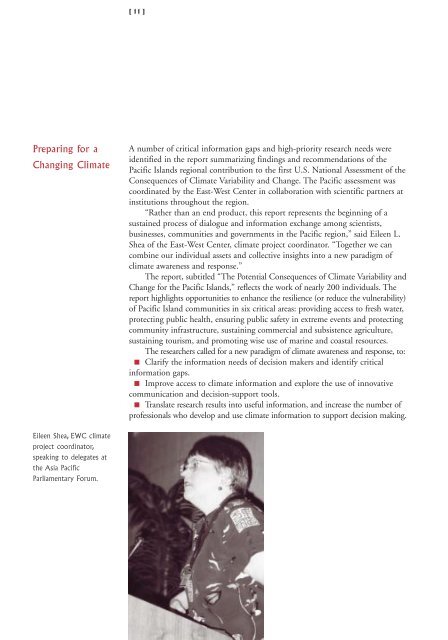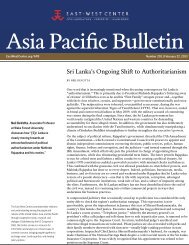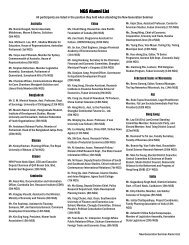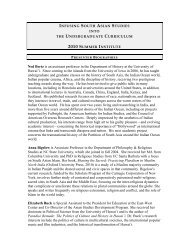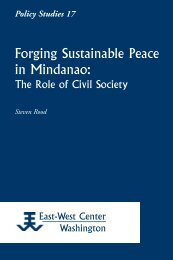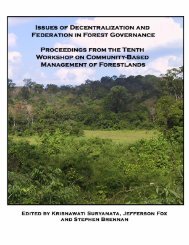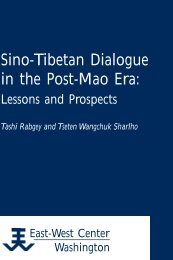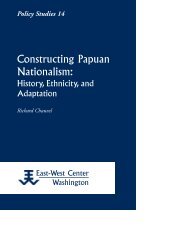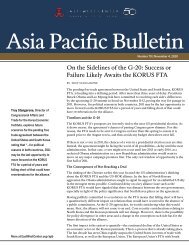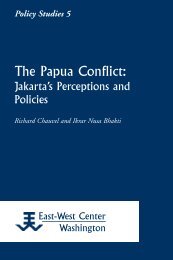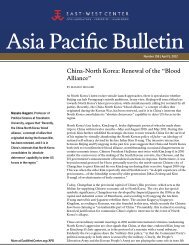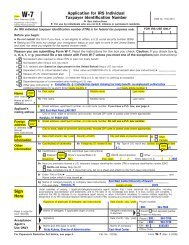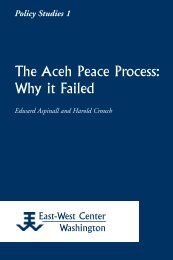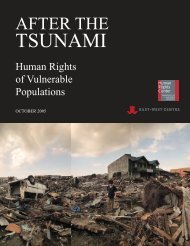East-West Center Annual Report 2001
East-West Center Annual Report 2001
East-West Center Annual Report 2001
- No tags were found...
You also want an ePaper? Increase the reach of your titles
YUMPU automatically turns print PDFs into web optimized ePapers that Google loves.
[ 11 ]Preparing for aChanging ClimateA number of critical information gaps and high-priority research needs wereidentified in the report summarizing findings and recommendations of thePacific Islands regional contribution to the first U.S. National Assessment of theConsequences of Climate Variability and Change. The Pacific assessment wascoordinated by the <strong>East</strong>-<strong>West</strong> <strong>Center</strong> in collaboration with scientific partners atinstitutions throughout the region.“Rather than an end product, this report represents the beginning of asustained process of dialogue and information exchange among scientists,businesses, communities and governments in the Pacific region,” said Eileen L.Shea of the <strong>East</strong>-<strong>West</strong> <strong>Center</strong>, climate project coordinator. “Together we cancombine our individual assets and collective insights into a new paradigm ofclimate awareness and response.”The report, subtitled “The Potential Consequences of Climate Variability andChange for the Pacific Islands,” reflects the work of nearly 200 individuals. Thereport highlights opportunities to enhance the resilience (or reduce the vulnerability)of Pacific Island communities in six critical areas: providing access to fresh water,protecting public health, ensuring public safety in extreme events and protectingcommunity infrastructure, sustaining commercial and subsistence agriculture,sustaining tourism, and promoting wise use of marine and coastal resources.The researchers called for a new paradigm of climate awareness and response, to:■ Clarify the information needs of decision makers and identify criticalinformation gaps.■ Improve access to climate information and explore the use of innovativecommunication and decision-support tools.■ Translate research results into useful information, and increase the number ofprofessionals who develop and use climate information to support decision making.Eileen Shea, EWC climateproject coordinator,speaking to delegates atthe Asia PacificParliamentary Forum.


